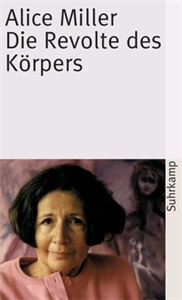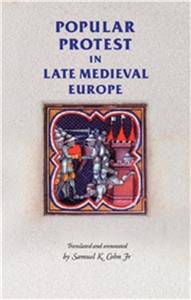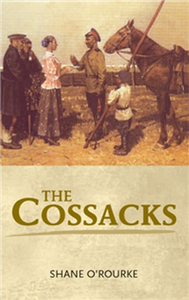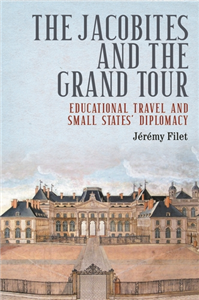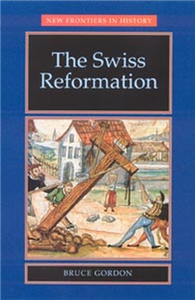Your Search Results
-
Promoted ContentLiterature & Literary StudiesJanuary 2013
Popular protest in late-medieval Europe
Italy, France and Flanders
by Samuel Kline Cohn
The documents in this stimulating volume span from 1245 to 1424 but focus on the 'contagion of rebellion' from 1355 to 1382 that followed in the wake of the plague. They comprise a diversity of sources and cover a variety of forms of popular protest in different social, political and economic settings. Their authors range across a wide political and intellectual horizon and include revolutionaries, the artistocracy, merchants and representatives from the church. They tell gripping and often gruesome stories of personal and collective violence, anguish, anger, terror, bravery, and foolishness. Of over 200 documents presented here, most have been translated into English for the first time, providing students and scholars with a new opportunity to compare social movements across Europe over two centuries, allowing a re-evaluation of pre-industrial revolts, the Black Death and its consequences for political culture and action. This book will be essential reading for those seeking to better understand popular attitudes and protest in medieval Europe.
-
Promoted Content
-
 Trusted Partner
Trusted Partner
-
 Trusted Partner
Trusted Partner
-
 Trusted Partner
Trusted Partner
-
 Trusted Partner
Humanities & Social SciencesSeptember 2013
Trusted Partner
Humanities & Social SciencesSeptember 2013Lisbon rising
Urban social movements in the Portuguese Revolution, 1974–75
by Pedro Pinto
Lisbon rising explores the role of a widespread urban social movement in the revolutionary process that accompanied Portugal's transition from authoritarianism to democracy. It is the first in-depth study of the widest urban movement of the European post-war period, an event that shook the balance of Cold War politics by threatening the possibility of revolution in Western Europe. Using hitherto unknown sources produced by movement organisations themselves, it challenges long-established views of civil society in Southern Europe as weak, arguing that popular movements had an important and autonomous role in the process that led to democratisation, inviting us to rethink the history and theories of transitions in the region in ways that account for popular agency. Lisbon rising will be of interest not only to students of twentieth-century European history, but across disciplines to students of democratisation, social movements and citizenship in political science and sociology. ;
-
 Trusted Partner
Trusted Partner
-
 Trusted Partner
Humanities & Social SciencesMarch 2017
Trusted Partner
Humanities & Social SciencesMarch 2017Air power and colonial control
by David Omissi
Air policing was used in many colonial possessions, but its most effective incidence occurred in the crescent of territory from north-eastern Africa, through South-West Arabia, to North West Frontier of India. This book talks about air policing and its role in offering a cheaper means of 'pacification' in the inter-war years. It illuminates the potentialities and limitations of the new aerial technology, and makes important contributions to the history of colonial resistance and its suppression. Air policing was employed in the campaign against Mohammed bin Abdulla Hassan and his Dervish following in Somaliland in early 1920. The book discusses the relationships between air control and the survival of Royal Air Force in Iraq and between air power and indirect imperialism in the Hashemite kingdoms. It discusses Hugh Trenchard's plans to substitute air for naval or coastal forces, and assesses the extent to which barriers of climate and geography continued to limit the exercise of air power. Indigenous responses include being terrified at the mere sight of aircraft to the successful adaptation to air power, which was hardly foreseen by either the opponents or the supporters of air policing. The book examines the ethical debates which were a continuous undercurrent to the stream of argument about repressive air power methods from a political and operational perspective. It compares air policing as practised by other European powers by highlighting the Rif war in Morocco, the Druze revolt in Syria, and Italy's war of reconquest in Libya.
-
 Trusted Partner
February 2016
Trusted Partner
February 2016Die Kunst der Revolte
Snowden, Assange, Manning
by Geoffroy Lagasnerie, Jürgen Schröder
Edward Snowden, Julian Assange und Chelsea Manning sind entscheidende Akteure in den zentralen Auseinandersetzungen unseres Internetzeitalters um Freiheit und Überwachung, Geheimdienste, Krieg und Terrorismus. Für den jungen französischen Philosophen Geoffroy de Lagasnerie sind sie aber noch mehr als das: Sie sind »exemplarische Figuren« einer neuen Kunst der Revolte, einer neuen Form des politischen Handelns und Subjektseins. Sein scharfsinniger Essay trifft ins Herz der Gegenwart. Das Prinzip der Anonymität, wie es WikiLeaks, aber auch die Hackergruppe Anonymous praktizieren, und die Gesten der Flucht und des Exils von Snowden und Assange brechen mit den traditionellen Formen des zivilen Ungehorsams. Sie fordern uns dazu auf, die demokratische Öffentlichkeit und den politischen Raum neu zu denken: Was bedeutet es heute, politisch das Wort zu ergreifen, ein Bürger, ein Teil eines Kollektivs zu sein? Mit ihren Aktionen formulieren diese Internetaktivisten und Hacker für de Lagasnerie nicht weniger als eine neue kritische Theorie und entwerfen ein Ideal der Emanzipation in pluralen, heterogenen und flüchtigen Gemeinschaften.
-
 Trusted Partner
Trusted Partner
-
 Trusted Partner
Humanities & Social SciencesApril 2020
Trusted Partner
Humanities & Social SciencesApril 2020Early modern war narratives and the Revolt in the Low Countries
by Raymond Fagel, Leonor Álvarez Francés, William G. Naphy, Beatriz Santiago Belmonte
-
 Trusted Partner
December 2005
Trusted Partner
December 2005Die Revolte des Körpers
by Alice Miller
Das vierte Gebot, getragen von der herkömmlichen Moral, verlangt von uns, unsere Eltern zu ehren und zu lieben, auf daß wir – so die versteckte Drohung – lange leben. Dieses Gebot der Ehr-Furcht beansprucht universelle Gültigkeit. Wer es befolgen will, obwohl er von seinen Eltern einst mißachtet, mißhandelt, mißbraucht wurde, kann dies nur, wenn er seine wahren Emotionen verdrängt. Gegen diese Verleugnung und das Ignorieren von unbewältigten Kindheitstraumata revoltiert indes der Körper häufig mit schweren Erkrankungen. Wie diese entstehen, zeigt Alice Miller, die Autorin des Welterfolgs Das Drama des begabten Kindes, in ihrem neuen Werk. In all ihren Büchern hat sich Alice Miller mit der Verleugnung des Leidens in der Kindheit auseinandergesetzt. In Die Revolte des Körpers schildert sie nun die Konsequenzen, die die Abspaltung starker und wahrer Emotionen für den Körper hat. Das Buch handelt von dem Konflikt zwischen dem, was wir fühlen und was unser Körper registriert hat, und dem, was wir fühlen möchten, um den moralischen Normen zu entsprechen, die wir seit jeher verinnerlicht haben. Diese psychobiologische Gesetzmäßigkeit enthüllt Alice Miller im ersten Teil des Buches anhand der Lebensläufe zahlreicher Schriftsteller wie Schiller, Joyce, Proust oder Mishima. Die beiden folgenden Teile weisen Wege auf, die aus dem Teufelskreis des Selbstbetrugs hinausführen und auch eine Befreiung von Krankheitssymptomen, den Appellen des Körpers, ermöglichen können.
-
 Trusted Partner
Humanities & Social SciencesMay 2001
Trusted Partner
Humanities & Social SciencesMay 2001Cromwell's major-generals
Godly government during the English Revolution
by Christopher Durston, Peter Lake, Anthony Milton, Jason Peacey, Alexandra Gajda
The first full-scale study of the rule of Cromwell's major-generals over England and Wales during 1655 and 1656. This is a period which had a dramatic impact upon contemporaries and has remained a powerful symbol of military rule down to the present day. Contains chapters on the three most important aspects of the major-generals' work: the collection of the decimation tax; the attempt to improve the security of the regime; and the struggle to build the 'Godly Nation'. Concludes with an investigation of the 1656 election and the major-generals subsequent unexpected fall from power. Fills a major gap in the historiography of Cromwellian England. ;
-
 Trusted Partner
Literature & Literary StudiesDecember 2004
Trusted Partner
Literature & Literary StudiesDecember 2004Popular protest in late-medieval Europe
Italy, France and Flanders
by Samuel Kline Cohn Jr, Rosemary Horrox, Simon Maclean
The documents in this stimulating volume span from 1245 to 1424 but focus on the 'contagion of rebellion' from 1355 to 1382 that followed in the wake of the plague. They comprise a diversity of sources and cover a variety of forms of popular protest in different social, political and economic settings. Their authors range across a wide political and intellectual horizon and include revolutionaries, the artistocracy, merchants and representatives from the church. They tell gripping and often gruesome stories of personal and collective violence, anguish, anger, terror, bravery, and foolishness. Of over 200 documents presented here, most have been translated into English for the first time, providing students and scholars with a new opportunity to compare social movements across Europe over two centuries, allowing a re-evaluation of pre-industrial revolts, the Black Death and its consequences for political culture and action. This book will be essential reading for those seeking to better understand popular attitudes and protest in medieval Europe. ;
-
 Trusted Partner
Humanities & Social SciencesAugust 2007
Trusted Partner
Humanities & Social SciencesAugust 2007The Cossacks
by Shane O'Rourke
This is an exceptional book covering 500 years of the history of the Cossacks - the recklessly brave, wild horsemen or the romantic hero of the steppe or the brutal mounted policemen, as they have been remembered throughout history. Starting with a description of the world of the steppe before moving on to a more detailed analysis of the circumstances in which the Cossacks emerged and flourished in the fifteenth and sixteenth centuries, the author considers the relationship of the Cossacks to the surrounding states in the seventeenth and eighteenth centuries through the prism of three great conflicts: the revolts of Bohdan Khelmnytsky, Stepan Razin and Emel'ian Pugachev. The author then looks at the Cossacks from the end of the Pugachev revolt in 1774 until the outbreak of the First World War, as well as the Cossacks in the Russian revolutionary period and under Soviet power. A lucid and engaging book that conveys the passion, exuberance and tragedy of these extraordinary people, it will be enjoyed by students, scholars and general readers interested in Russian history. ;
-
 Trusted Partner
Literature & Literary StudiesFebruary 2023
Trusted Partner
Literature & Literary StudiesFebruary 2023Imagining the Irish child
Discourses of childhood in Irish Anglican writing of the seventeenth and eighteenth centuries
by Jarlath Killeen
This book examines the ways in which ideas about children, childhood and Ireland changed together in Irish Protestant writing of the seventeenth and eighteenth centuries. It focuses on different varieties of the child found in the work of a range of Irish Protestant writers, theologians, philosophers, educationalists, politicians and parents from the early seventeenth century up to the outbreak of the 1798 Rebellion. The book is structured around a detailed examination of six 'versions' of the child: the evil child, the vulnerable/innocent child, the political child, the believing child, the enlightened child, and the freakish child. It traces these versions across a wide range of genres (fiction, sermons, political pamphlets, letters, educational treatises, histories, catechisms and children's bibles), showing how concepts of childhood related to debates about Irish nationality, politics and history across these two centuries.
-
 Trusted Partner
Humanities & Social SciencesApril 2025
Trusted Partner
Humanities & Social SciencesApril 2025The Jacobites and the Grand Tour
Educational travel and small-states' diplomacy
by Jérémy Filet
In the first monograph to fully examine the intersecting networks of Jacobites and travellers to the continent, Filet considers how small states used official diplomacy and deployed soft power - embodied by educational academies - to achieve foreign policy goals. This work uses little-known archival materials to explain how and why certain small states secretly supported the Jacobite cause during the crucial years surrounding the 1715 rising, while others stayed out of Jacobite affairs.At the same time, the book demonstrates how early modern small states sought to cultivate good relations with Britain by attracting travellers as part of a wider trend of ensuring connections with future diplomats or politicians in case a Stuart restoration never came.This publication therefore brings together a study of Britain, small states, Jacobitism, and educational travel, in its nexus at continental academies.
-
 Trusted Partner
Clinical psychologyJuly 2014
Trusted Partner
Clinical psychologyJuly 2014Operationalized Psychodynamic Diagnosis OPD-2
Manual of Diagnosis and Treatment Planning
by OPD-KJ Task Force
The Operationalized Psychodynamic Diagnosis (OPD) is a form of multiaxial diagnostic and classification system based on psychodynamic principles, analogous to those based on other principles such as DSM and ICD. It is based on five axes: I = experience of illness and prerequisites for treatment, II = interpersonal relations, III = conflict, IV = structure, and V = mental and psychosomatic disorders (in line with Chapter V (F) of the ICD-10). After an initial interview lasting 1–2 hours, the clinician (or researcher) can evaluate the patient’s psychodynamics according to these axes and enter them in the checklists and evaluation forms provided. The new version, OPD-2, has been developed from a purely diagnostic system to include a set of tools and procedures for treatment planning and for measuring change, as well as for determining the appropriate main focuses of treatment and developing appropriate treatment strategies. Target Group: For psychodynamic psychotherapists, clinical psychologists, psychoanalysts, specialists in psychosomatic medicine, and psychiatrists.
-
 Trusted Partner
Humanities & Social SciencesJuly 2002
Trusted Partner
Humanities & Social SciencesJuly 2002The Swiss Reformation
The Swiss Reformation
by Bruce Gordon, Mark Greengrass
The Swiss Reformation was a seminal event of the sixteenth century which created a Protestant culture whose influence spread across Europe from Transylvania to Scotland. Offers the first comprehensive study of the Swiss Reformation and argues that the movement must be understood in terms of the historical evolution of the Swiss Confederation, its unique and fluid structures, the legacy of the mercenary trade, the distinctive character of Swiss theology, the powerful influence of Renaissance humanism, and, most decisively, the roles played by the dominant figures, Huldrych Zwingli and Heinrich Bullinger. Marked by astounding creative energy, incendiary preaching, burning political passions, peasant revolts, and breath-taking scholarship, as well as by painful divisions, civil war, executions and dashed hopes, the story of the Swiss Reformation is told with extensive use of primary sources. Explores the narrative of events before turning to consider themes such as the radical opposition, church and community, daily life in the Confederation, cultural achievements and the Swiss place in the wider European Reformation world. ;
-
 Trusted Partner
Humanities & Social SciencesJune 2020
Trusted Partner
Humanities & Social SciencesJune 2020The Trump revolt
by Edward Ashbee
This book considers the reasons for Donald Trump's surprise victory in the 2016 presidential election. It charts the prolonged campaign and the realigning processes that took place, analysing the ideas that defined the Trump platform, the electoral shifts in states regarded as solid 'firewalls' for the Democratic Party and the responses of Republican Party elites. Although he is subject to contradictory pressures, the book places Trump firmly within the right-wing populist tradition. However, it argues that the sentiments that drove his campaign were not only a response to economic fears, high levels of inequality and racial resentment - they were also shaped by the structural character of American governance, which fuels hostility towards Washington DC and the 'political class'. The book concludes by assessing the extent to which Trump's victory and parallel developments in Europe mark a reconfiguration of neoliberalism.












